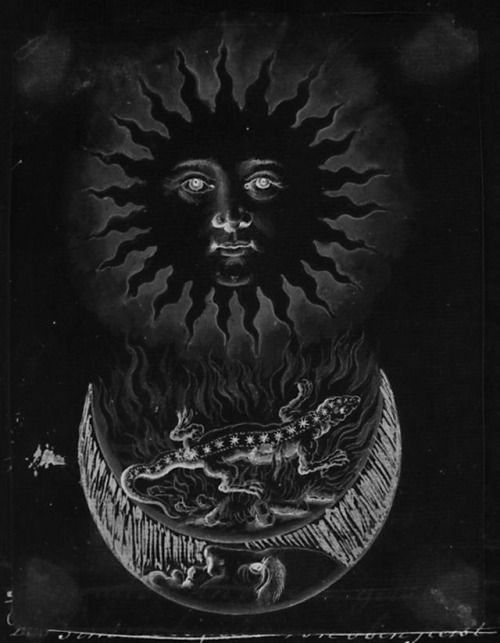So, I'm working on throwing spells out of my game. And with them, the magic-user and cleric. I want to try and bring in a new way to execute the supernatural in my game--to imagine magic beyond spells. My answer right now is through Esoteries.
 |
| We're gettin' weird |
There are eight categories of Esoteries. Each category works different, does different things, and covers different concepts. The point of Esoteries is that any character, from thief to fighter to mystic, can make use of some type of Estoerty. Or, they cannot--and they aren't punished for having the magic VIP Cards that are included in modern day spell lists.
The eight types of Esoteries are:
- Curios. Strange magical things with a single purpose. A branch that blossoms white flowers when an angel is nearby or black when a demon's presence is close.
- Curses. Exactly what's on the tin. Curses will be a special condition that gives you a benefit at the cost of something dear--or they can be something that flat out ruins you.
- Miracles. Praying to the divine for a miracle from them. Pantheons and specific gods offer different miracles. These are once-in-a-lifetime events that cannot be replicated in your game, and are the rarest type of Esotery to make use of. See here for an example of how these would work.
- Mysticisms. Practices that allow one to interact with the supernatural. Think making a complex circle of salt to keep out curses, or a special way of meditation that allows your body to increase in size.
- Pacts. You've made a pact with something. You agree to a number of conditions; the more conditions you agree too, the more the thing that made the pact with you will aid you.
- Psionics. Mind powers. Gotta love mind powers, man.
- Sacraments. Religious rituals your character has undergone. Provide some strange benefit but at a roleplay cost; if you do something that breaks your pantheon's code, you lose the benefits of the sacrament and can even become cursed.
- Sorceries. Strange powers that manifest basically as spells, but on a grander scale and providing some crazy effects. These are literally your Vagines are Magic-style spells.
The name scheme is a happy little accident.
Anyway, a lot of people will wonder why not just use spells for all of this. To me, spells represent codified magic. You memorize a spell with a name like Asshole's Heavenly Kiss and you cast it and you write it in your spellbook. That doesn't cut it for me. I want to have different kinds of supernatural things going on that the players can draw from--more diversified than loot and spells. Of course, a you can look at this list and say "Well you made eight categories..." and yes, you're right, I did categorize the supernatural. But these effects can't be replicated. They aren't things that can be reverse engineered.
Arcane Universities and the like study Esoteries and are made weird by them, and sometimes they discover new ones, but they don't understand them like a standard D&D wizard does the arcane, or how Hogwarts magicians understand the supernatural.
I'll probably need to make examples of each type of Esotery and their mechanics before people really buy onto this idea, but I think it shows a lot of promise for where the supernatural can go outside of just spells and artefacts.
If you wanted, you could probably use spells with this system with no problem, especially if it's a vancian system. But I think you might get a couple overlapping effects and your game would be very magical because of it. Right now, I'm thinking I would draw on 1-4 of these Esotery Categories when making a system and say "This is magic in this setting." So something like Dark Sun would have Psionics and Sacraments. The Heaven Bless'd & Burned has Curios, Miracles, and Mysticisms. Ultimately, one all these are done, they should allow for settings I or others make to feel different in terms of magic beyond having lots of spells or no spells.
No comments:
Post a Comment